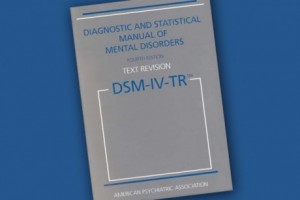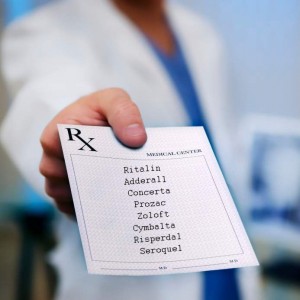April 6, 2012
By Ian Dowbiggin
“Yet in the end analysis, perhaps the most disturbing aspect of consecrating relational disorders is that it is just the latest in a long series of events in the history of psychiatry which has seen professionals increasingly try to extend their authority into the private precincts of everyday life.”

Follow the Money: for some years now there has been a movement afoot in the mental health care field to include a diagnosis called "relational disorder" in the fifth edition of the American Psychiatric Association's Diagnostic and Statistical Manual of Mental Disorders (DSM), due out in 2013.
How many times have we exclaimed in exasperation: “My family’s driving me crazy”?
Until now, it was a mere figure of speech. By this time next year it could entitle you to free therapy.
That’s because for some years now there has been a movement afoot in the mental health care field to include a diagnosis called “relational disorder” in the fifth edition of the American Psychiatric Association’s Diagnostic and Statistical Manual of Mental Disorders (DSM), due out in
2013.
Relational disorders are defined as “persistent and painful patterns of feelings, behavior, and perceptions involving two or more partners in an important personal relationship.” Typically, people suffering from relational disorders have problems with their primary support groups, notably their families.
The concept of relational disorders, like just about everything in diagnostic psychiatry these days, goes back a long way. In the nineteenth century psychiatrists in France coined the phrase “folie â deux” to describe a madness shared by two people.
In a relational disorder between two spouses, for example, while neither person might suffer from an individual disorder, the two could share one. Or as Time magazine put it in 2002, “I’m OK, you’re OK, we’re not OK.”
By now you might be asking: So what?

DSM certification of RD could prove to be a cash cow for all of the professionals treating people from heartbroken marriages and feuding families. 800,000 U.S. couples a year visit offices for marital and family help. Do the math. Some people stand to make a lot of money.
Well, here’s what: the new DSM, the latest in a series stretching back to 1952, ranks among the most important textbooks ever. Its impact affects almost all domains of everyday life, including government, health care, industry, education, the courts and the media.
If the authors of the DSM officially recognize a diagnosis it gives researchers a common vocabulary for studying mental conditions. This comes in handy when someone is researching psychological illnesses, whose causes and symptoms are much less clear than, say, cancer or heart disease.
Proponents of the RD diagnosis say research is on their side and that people with dysfunctional relationships fill up doctors’ waiting rooms.
Yet perhaps most important is the fact that once a diagnosis makes it into the DSM, third party insurance in the United States normally will cover the costs of treatment. No wonder wags have called a DSM diagnosis “an insurance claim.”
Now, I have no insider knowledge of DSM deliberations, so I can’t say for certain that relational disorders will be included in the next volume. What I can tell you is that since the 1990s a group of researchers has been furiously lobbying the DSM’s authors to accept RD as an official diagnosis.
I can also tell you that the marriage and family counseling profession tends to be behind this move. And you can well understand why. By the end of the twentieth century the MFC field had attained status as the fifth “core” mental health group. But at that very time managed care economics began dominating medicine, gutting third-party reimbursement for psychiatric services.
It became imperative for counselors and therapists to get the kind of problems they deal with in treatment recognized as genuine disorders in the DSM. If not, many would go broke.
As Peter Keefe of the University of Toronto’s Department of Psychiatry noted in 2003, some suspect that the move to legitimize RD is a “gambit to loosen the purse strings of managed care providers.”
DSM certification of RD could prove to be a cash cow for all of the professionals treating people from heartbroken marriages and feuding families. 800,000 U.S. couples a year visit offices for marital and family help. Do the math. Some people stand to make a lot of money.
Yet in the end analysis, perhaps the most disturbing aspect of consecrating relational disorders is that it is just the latest in a long series of events in the history of psychiatry which has seen professionals increasingly try to extend their authority into the private precincts of everyday life.
So if the next DSM does include RD, countless people will wake up one morning with a psychiatric disorder. And it’ll have a lot more to do with professional self-interest than hard science.
http://www.huffingtonpost.com/ian-dowbiggin/relationships-may-soon-be-diseases_b_1408948.html


SHARE YOUR STORY/COMMENT